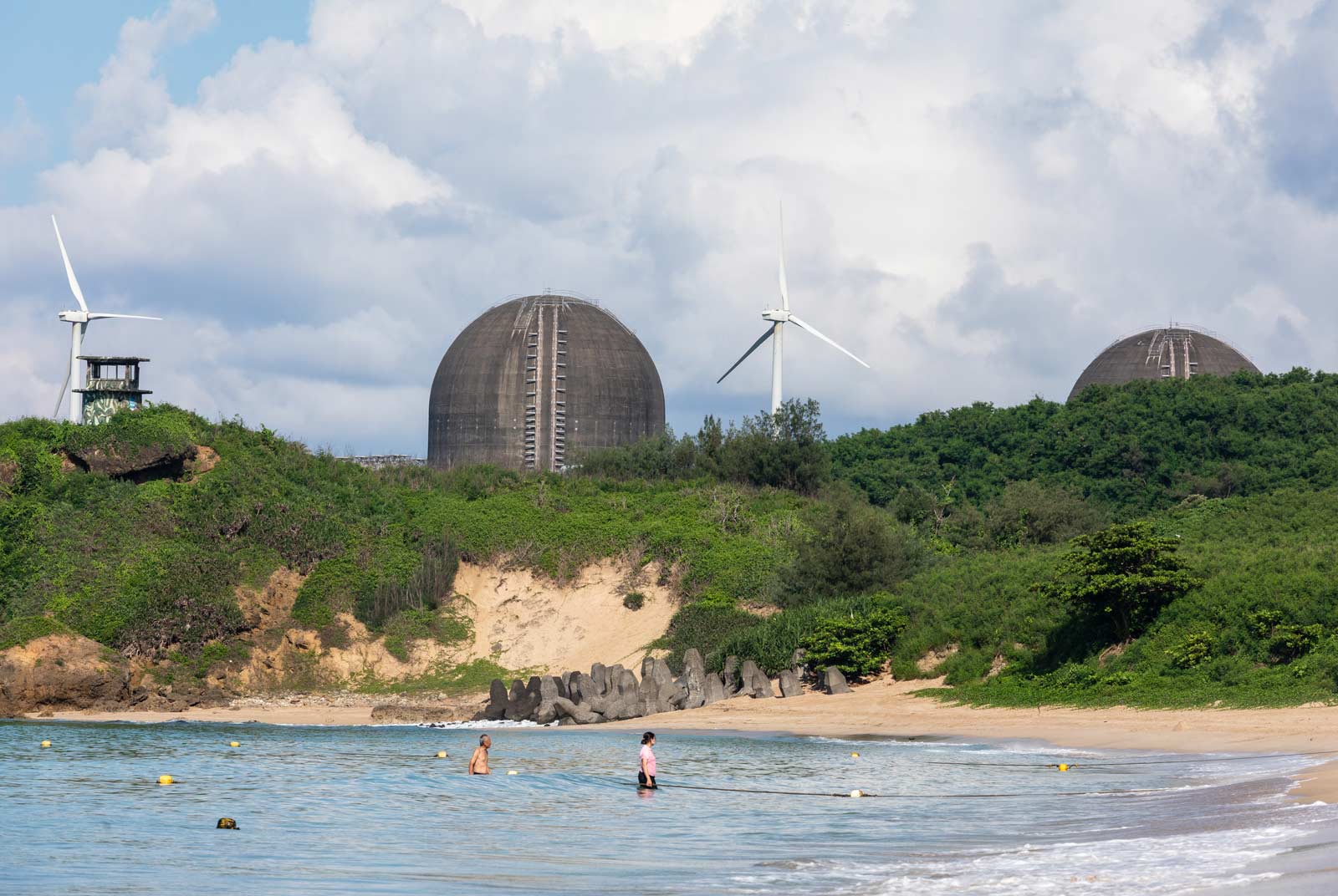#DearGreenpeace: Nuclear energy can play a role in Taiwan’s decarbonization

Source:Chien-Ying Chiu
In this op-ed, Jessica Lu highlights global pro-nuclear sentiment, including Taiwan, and urges reevaluation by environmental groups like Greenpeace to address the climate crisis.
Views
#DearGreenpeace: Nuclear energy can play a role in Taiwan’s decarbonization
By Jessica Luweb only
Walking the streets of Taipei, I often see passionate young people fundraising for the international environmental organization "Greenpeace." Their campaigns usually revolve around protecting endangered animals or emphasizing the impact of plastic products on the environment. When confronted with beautifully printed animal photos, it's hard not to donate. However, many kind-hearted donors may not realize that their contributions could inadvertently lead to more avoidable carbon emissions.
Greenpeace was established in 1971 with the primary goal of being anti-nuclear. In recent years, as climate change became the most pressing environmental issue of our time, Greenpeace has pivoted. With slogans like "time is running out" and "reverse climate change," they have positioned themselves as a force fighting against global warming. Yet, they have never ceased their anti-nuclear stance, even though nuclear power is a low-carbon energy source.
There's a Swedish girl named Ia Aanstoot. Just like Greta Thunberg, she is a student who participates in Fridays for Future. She couldn't understand why, in 2023, amidst our climate emergency, Greenpeace is still against nuclear energy. That’s why Ia started the “Dear Greenpeace” petition. She urged Greenpeace to abandon its outdated anti-nuclear position to avoid jeopardizing the future of young people.
This legal battle between young pro-nuclear student-activists and established international environmental organizations is the most attention-grabbing focal point of this wave of pro-nuclear sentiments. Perhaps it will mark a generational change as veteran anti-nuclear groups are replaced by younger pro-nuclear factions in the environmental movement.
I was a volunteer for the "Go green with Nuclear" referendum. After listening to the experts, I learned about the essential role of a stable base load in electric power and the growing importance of carbon emissions. These industry leaders who have long focused on renewable energy also enlightened us on their pros and cons.
Besides these "hard facts," these experts spent considerable time explaining the real causes and impacts of nuclear-related accidents like Chernobyl, Three Mile Island, and Fukushima, and why current nuclear technology is unlikely to replicate these incidents. Indeed, the views of foreign nuclear authorities and experts align with what our experts have shared.
The Russia-Ukraine war achieved what the global climate summits couldn't: as the price of natural gas soared, the European Union finally recognized nuclear power as “environmentally sustainable economic activity.” Low carbon nuclear power is finally an option for many countries to reach their “net zero” goals. Pro-nuclear activists worldwide are thrilled. Even though the German government insists on phasing out nuclear power, the German public has long been more than half supportive of using nuclear energy. Yet, at this critical turning point for carbon reduction, Greenpeace, which always emphasizes climate change issues, is stubbornly and prominently showcasing its anti-nuclear stance by suing the EU over its classification of nuclear energy as an environmentally sustainable economic activity. It's bewildering why they would do this.
In Taiwan, the ruling party's anti-nuclear stance seems to give Greenpeace some room and time to operate. The public is still enthusiastic about donating. Greenpeace even plans to host an energy debate for presidential candidates, hinting at promoting an energy policy that excludes nuclear power. They are going into this event with a pre-set stance against nuclear power, planning to influence the candidate’s policy and lead them towards the “politically correct” solution. This strategy mirrors their arrogant stance in suing the EU.
As the founder of the "Moms4Climate Taiwan," we, along with partner organizations "Climate Vanguard" and "Clean Energy Transition Alliance", support all carbon-free energy, including nuclear power. We sincerely hope that all environmental organizations, including Greenpeace, will no longer misunderstand nuclear power and will strive to bridge the gap between environmental groups and nuclear energy in the face of a climate emergency.
We support the Dear Greenpeace petition because, like Europe, Taiwan needs stable, low-carbon nuclear power to programmatically save our planet.
(This piece reflects the author's opinion, and does not represent the opinion of CommonWealth Magazine.)
About the Author:

Jessica Lu is a mom with two children. Right after her retirement from a marketer in greater China region, she became a volunteer for pro-nuclear referendum. She also hosts a fan page on facebook “Mom4Climate” since 2019. She is also the chief editor for the book “A War without Smoke- a story of citizen movement for Nuclear ” published in August. You can reach Jessica via [email protected]
Have you read?
- Air Pollution or Nuclear Power?
- Phasing out Nuclear Power?
- Facing an energy crisis, is Europe really embracing nuclear?
Uploaded by Ian Huang






